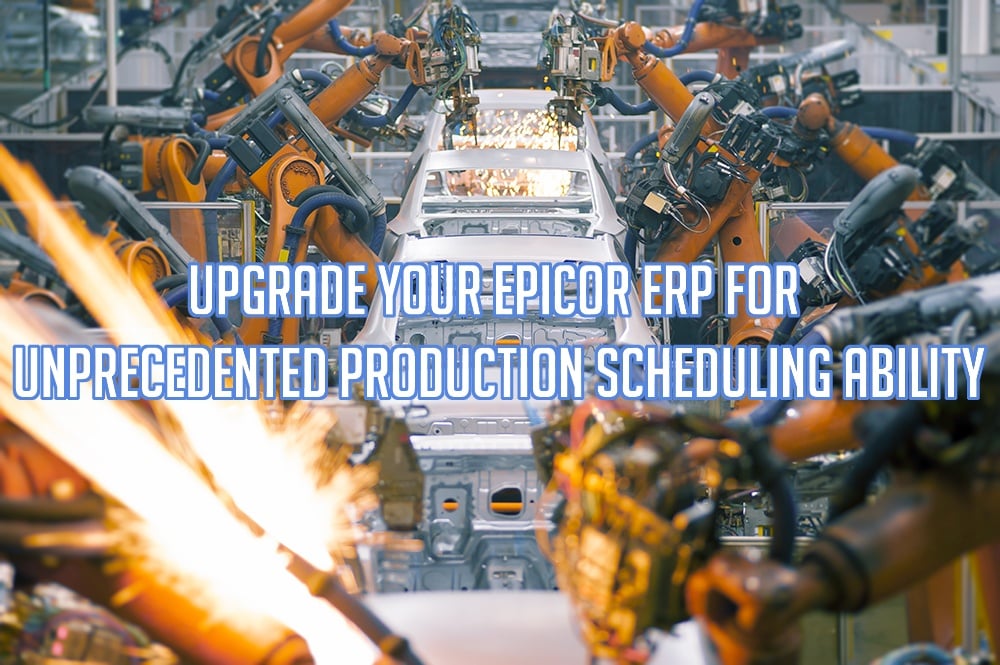
With its recent appearance on the ERP software landscape, Epicor 10 has been generating a lot of interest as an enterprise planning platform. That is coming from both those already running legacy versions of Epicor who might want an upgrade, and those who don’t have ERP at all. Marketed as a much faster, more usable and capable version of the manufacturing technology, our consultants have fielded a few questions on whether the cost of the upgrade is truly worth it. Although there are many reasons that an upgrade to the latest version of Epicor, we’re turning our attention to the application’s capability for powerful and comprehensible production scheduling. While the module is capable of handling complex scheduling situations, it remains intuitive to use, even for users that might not be all too familiar with enterprise software—or how to customize it.
No matter what area of business you’re in, be it manufacturing, services or distribution (or perhaps some combination of all of the above), the likelihood is that you’ll be using your ERP for process planning and scheduling. It’s a key component when it comes to any ERP strategy. And, as part of Epicor’s focus on creating adaptive software that can accommodate any business’ unique needs, the newest version of their ERP prides itself on its novel advanced materials planning module that allows for complex scheduling functions without asking for huge customization or technical development. What’s more, you can improve lead response time with make-to-order and engineer-to-order capabilities, and factor those processes into your shop-floor schedule. More accurate estimate times will also be a boon to customers—giving them precise dates and expectations for delivery.
An upgrade to Epicor 10 can present a whole new world of production scheduling capability. Businesses that operate in markets with a high degree of versatility, or are producing products for various private label brands, will find this kind of nuanced scheduling control (and ability to alter that same schedule in the blink of an eye) crucial. Epicor 10 includes the capability for web-based scheduling—storing your processes and production plans online and in the cloud. If you do upgrade to Epicor 10 and choose to take advantage of this feature, you will be shoring up the safety of your operations in the event of a technical breakdown or a natural disaster at one or more of your manufacturing locations. Shutdowns can be particularly deadly for mid-market businesses that only run one or a few different sites—backing up production lines across the board and setting your business backs weeks or months for every lost hour of manufacturing time. However, with cloud-based Epicor 10, a production manager can still access your ERP suite (even on a mobile device) and retool your machines in another location or rebuild your workflow to accommodate the shutdown and keep your business afloat during the crisis.
Current Epicor 10 users have noted the software’s unique ability to allow users to adapt to changing situations quickly—an invaluable quality when it comes to the often rapidly changing world of manufacturing and distribution. In fact, flexibility remains one of the strongest cases one can make for a business to upgrade to Epicor 10, and the suite’s ability to handle scheduling masterfully is a big part of that. If you’re currently running an older, legacy version of Epicor or Vantage ERP and have been thinking about an upgrade to Epicor 10 in order to make your enterprise software more agile, get in touch with one of consultants at Datix today. We have helped multiple businesses along the path of an upgrade and can help ease the transition, keeping your data safe and your employees comfortable on the new system. If you’d like to read our free e-book outlining the many more reasons for an Epicor upgrade, fill out the form at the top of this post!

